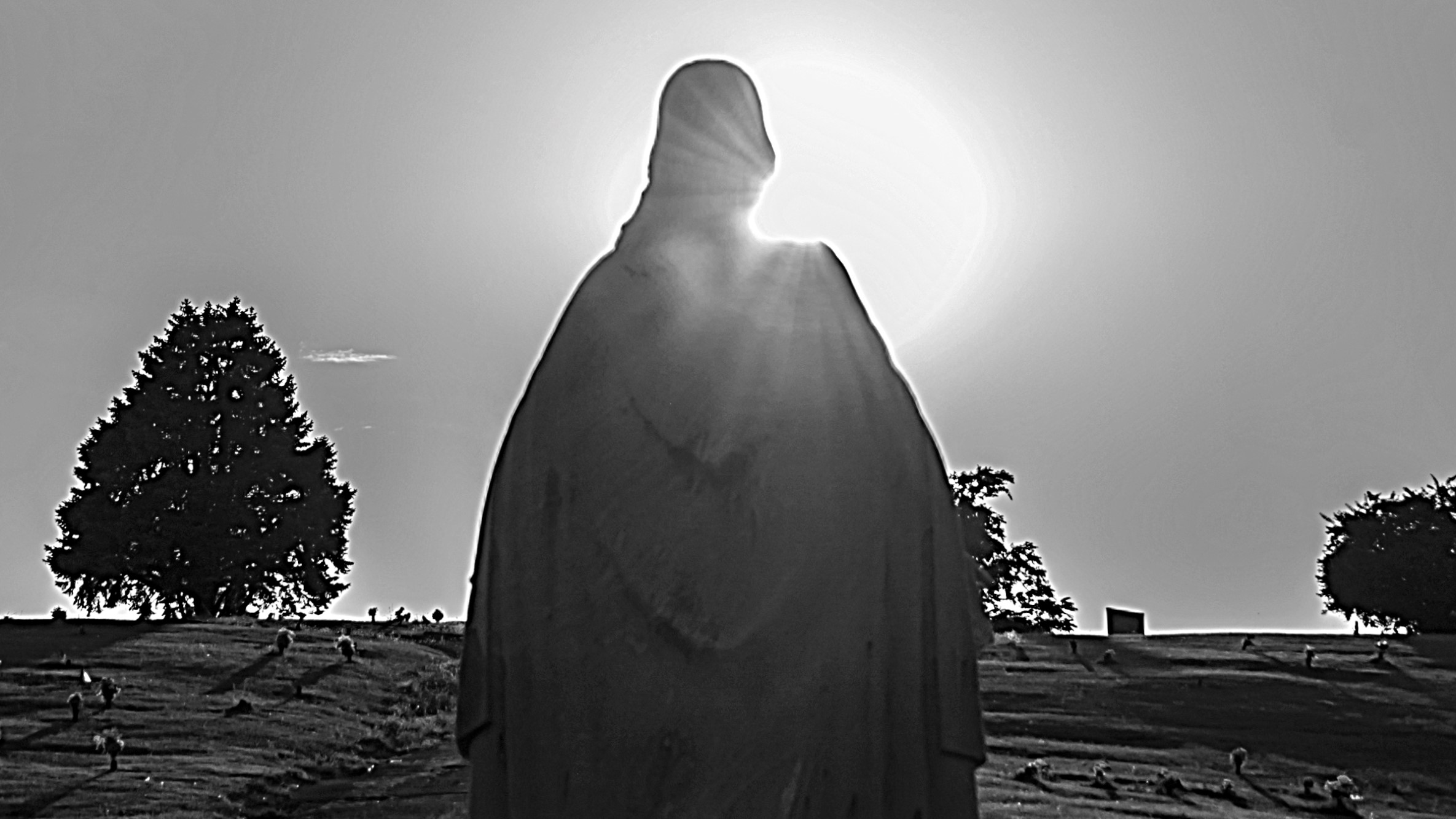
John 16:12-15
Trinity Sunday C29
12 “I still have many thingsA to say to you, but you cannotB bearC them now.
13 When the SpiritD of truthE comes,F
he will guideG you into allH the truth, for he will not speak on his own but will speak whatever he hears,I and he will declareJ to you the things that are to come.
14 He will glorifyK me because he will takeL what is mine and declare it to you. 15 All that the FatherM has is mine. For this reason I said that he will take what is mine and declare it to you.
Image credit: “Statue of Jesus Facing the Setting Sun” by JoLynne Martinez, 2019.
